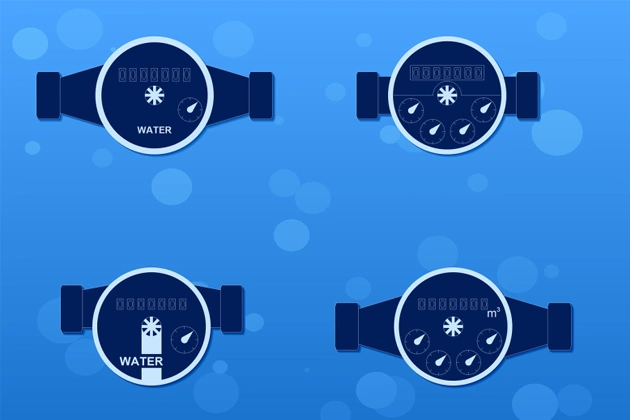Modern factories face constant pressure to innovate. Staying competitive means finding ways to connect operations with digital intelligence, streamlining processes, and improving decision-making.
Flow sensors play a critical role in this evolution. These small yet powerful devices deliver real-time data, bridging the gap between physical systems and Industry 4.0 technologies.
With advanced flow meters leading the charge in smarter measurement solutions, industrial environments can upgrade efficiency like never before.
In order to explain how this works in more detail, here are a few practical applications and key advancements at play in industries right now.
How Flow Sensors Support Industry 4.0 Integration
Modern industries rely on connected systems for seamless operations. Flow sensors significantly contribute to this by providing accurate, real-time data to IoT frameworks and advanced analytics tools.
Flow sensors enable Industry 4.0 integration by:
- Acting as bridges between physical machinery and digital networks, ensuring better coordination.
- Delivering precise readings to automate processes without manual intervention needed.
- Offering instant alerts when irregularities or inefficiencies occur in systems.
Whether you’re improving energy efficiency or maintaining production accuracy, you should view flow meters for sale to find models that suit your specific operational needs.
Selecting the right sensors simplifies implementation into smart factory setups, paving the way for future advancements.
Real-Time Data in Action
Access to real-time data has revolutionized how industries monitor and adjust their operations. Flow sensors are central to this transformation, delivering actionable insights that lead to better decision-making.
Real-time data improves processes by:
- Detecting issues early to minimize downtime and reduce costly repairs.
- Providing continuous performance feedback for optimized system efficiency.
- Enabling precise control of materials or fluids, ensuring consistent output quality.
With accurate data at your fingertips, adjustments can happen instantly, avoiding delays that disrupt production cycles. Industries that utilise these systems often experience increased productivity and lower operational costs.
Incorporating modern flow sensors ensures industrial systems stay efficient while adapting dynamically to changing demands.
Advancements in Flow Meter Technology for Smarter Factories
Flow meter technology has undergone significant advancements, providing factories with smarter tools to measure and manage their operations. These upgrades provide precision and adaptability across industries.
Notable improvements include:
- Development of non-invasive meters that reduce downtime during installation or maintenance.
- Integration with IoT platforms for remote monitoring and seamless data sharing.
- Enhanced accuracy under extreme conditions like high pressure or variable temperatures.
Factories equipped with modern flow meters experience fewer inefficiencies compared to those with outdated equipment. The improved sensors can handle complex workflows while providing real-time data directly into decision-making systems.
Reducing Waste and Enhancing Sustainability Through Better Monitoring
Efficient resource management is crucial for sustainability, and flow sensors play a vital role in minimizing waste. They provide the accuracy industries need to balance productivity with environmental responsibility.
Flow sensors reduce waste by:
- Identifying leaks or inefficiencies quickly to prevent unnecessary loss of materials.
- Optimizing resource use by providing precise measurements during operations.
- Helping maintain consistent quality, avoiding production errors that lead to wasted outputs.
Sustainability is ultimately a competitive advantage as 78% of consumers favor environmentally conscious businesses. Incorporating advanced flow monitoring means companies can lower costs while supporting green initiatives.
Future Trends to Watch in the Evolution of Flow Measurement Technology
The future of flow measurement technology promises smarter, more efficient solutions that adapt to modern industrial challenges. Emerging trends highlight innovation and a stronger focus on connectivity.
Key developments shaping the future include:
- Adoption of AI-powered sensors capable of predictive analytics for maintenance needs.
- Wider integration with 5G networks to enhance data transmission speed and reliability.
- Increased use of environmentally friendly materials in sensor manufacturing processes.
These advancements enable sensors to measure more accurately, supporting sustainability efforts and facilitating faster decision-making processes. Factories that upgrade their systems with next-generation technologies can anticipate improved operational resilience.
Final Thoughts
The bottom line is that advanced flow sensors connect physical processes to digital intelligence, empowering industries to streamline operations and make data-driven decisions.
As technology evolves, investing in modern sensors yields practical benefits, including increased efficiency, reduced waste, and enhanced sustainability in industrial environments.
Adopting these innovations ensures that your systems stay ahead of the curve while contributing to more efficient and smarter factory practices. The future of industrial success lies in embracing these transformative technologies today.










